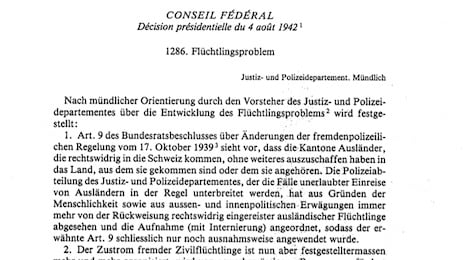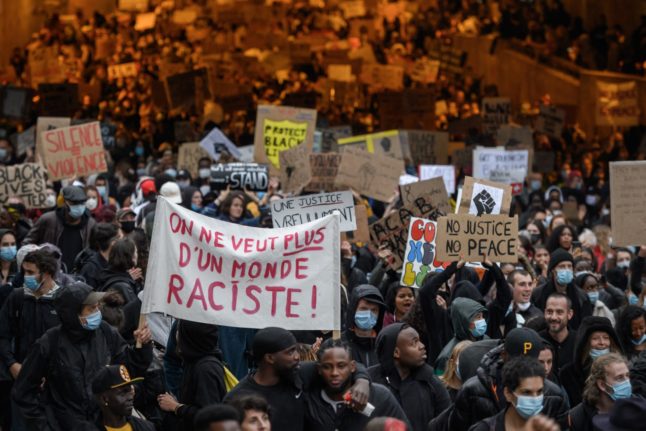A report aired by SRF on its Sunday evening newscast said the government was aware of German leader Adolf Hitler’s extermination plan and the existence of German concentration camps as early as 1942, based on documentary evidence.
At the time, however, Switzerland was throwing asylum seekers out of Switzerland, even though that was placing them in danger.
The information is in the hundreds of letters, telegrams and detailed reports collected by Swiss diplomats and sent to the federal cabinet during the Second World War.
The government also received information about the Nazi activities through photos, SRF reported on Sunday, which also marked Holocaust Remembrance Day.
The day commemorates the millions of Jewish victims of Nazi crimes during the war.
On January 27th 1945 Soviet troops liberated prisoners in the Auschwitz concentration camp, one of the most notorious death camps run by the Nazis.
“We can prove that the information about the murder of Jews was known in Bern as of May 1942,” Sascha Zala, director of Diplomatic Documents Switzerland (DDS), told SRF.
The previously unpublished documents were received by Eduard von Steiger, federal justice and police minister.
Despite the concerns of Swiss diplomats, a federal decree was issued in August 1942 that tightened immigration.
“In future, increased mass rejections of foreign civilian refugees must take place, even if the affected residents may face serious difficulties,” the decree said.
Switzerland’s refugee policy changed as the international situation of the time worsened, said Zala, a political historian.
The policy, initially tied to arguments about economic migrants, turned into a discourse about aliens “with clearly racist elements,” he said.
SRF said some of the diplomatic documents relating to the “Shoah,”are now published on the internet “as a witness to the darkest chapters of world history”.



 Please whitelist us to continue reading.
Please whitelist us to continue reading.
Member comments